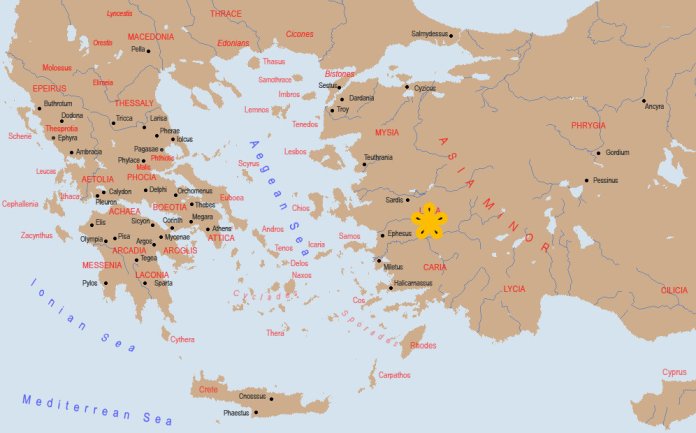 “I am not interested in the descendance of the citizens or their racial origins. I classify them using one criterion: their virtue. For me every virtuous foreigner is a Greek and every evil Greek worse than a Barbarian.” Alexander the Great – King of Macedon (356 – 323 BC)
“I am not interested in the descendance of the citizens or their racial origins. I classify them using one criterion: their virtue. For me every virtuous foreigner is a Greek and every evil Greek worse than a Barbarian.” Alexander the Great – King of Macedon (356 – 323 BC)
We all know the power of words. Alexander the Great used them. Crossing the Hellespont with his army in 334 BC Alexander threw his spear from his ship to the coast and it stuck in the Asian ground. He stepped onto the shore, pulled his weapon from the soil and declared that the whole of Asia would be won by the spear.
weapon from the soil and declared that the whole of Asia would be won by the spear.
_________________________________________
_________________________________________
Alexander the Great, Macedonian Kingdom, Paris-France, Louvre Museum, are magical words in my bilingual dictionary — they light me up and elevate me to the highest state of euphoria — and they are all included in this announcement: Alexander the Great, my favorite Greek God ( he is a Greek God as far as I am concerned , the God of eternal glory and immortality), is visiting Paris! Nothing will get me to Paris faster than that — not even Chanel, Lanvin, Dior or any other names – not even Alaxander McQueen, another one of my favorite Alexanders – anyway, I saw him recently at the Met in New York city.
Yes! Alexander the Great goes to Paris next October for a unique exhibition! And not just any place in Paris but at “Le Louvre”, the country’s most famous museum and one of the best museums on the planet!
Image of the Louvre Museum – Paris, France
A major exhibition entitled “In the Kingdom of Alexander the Great – Ancient Macedonia” will be hosted at the famous museum from October 2011 until January 2012.
 Image Map of Alexander the Great’s Kingdom of Macedonia
Image Map of Alexander the Great’s Kingdom of Macedonia
In 323 BC Alexander the Great, king of Macedonia, ruled a dominion that stretched from the Balkans to the Himalayas and from Egypt to the Caspian Sea. The most brilliant and most charismatic leader — I don’t think in my humble Macedonian opinion anyone was able to surpass him since — he had led a small Greek army on the campaign of over 20,000 miles to conquer the mighty Persian Empire. Originally from Iran, the Persians held sway over a domain which also included all of what are now Turkey, Israel and Egypt. It had taken him twelve years and he was only thirty-two. Alexander the Great was at that time the undisputed master of the world.
The curator of the department of Greek and Roman antiquities of the Louvre Mrs. Sophie Deschamp has travelled to all Macedonian cities in Northern Greece in order to select the 668 objects which are going to travel to Paris. “The French know that Alexander was Greek, but not Macedonian. Things are a little confused. They don’t know that Macedonia, the birthplace of Alexander the Great is part of Greece. The exhibition will be a great opportunity for all the visitors of the Louvre to learn about Alexander the Great, the origin and the timelessness of his myth” said Mrs. Deschamp.
The exhibits will include architectural portions of the Palace of Vergina, remnants from the grave of Phillip II, and other Macedonian graves, and significant findings from other regions. The French museum is considering this exhibit to be one of major importance. It will allocate its largest periodical exhibition halls measuring a total of 1,200 square meters.
Thanks to this exhibition I will be reunited with my beautiful ancestor and I will reconnect with Macedonia — my divine motherland! I love the French for giving me this opportunity. I am going back home! Home is where Ancient Macedonia and Alexander is, and this time home is Paris!
 Alexander finally gets to go West. He is conquering Paris and the hearts of the French. The glory of the Ancient Macedonian Kingdom continues 2,300 plus years later.
Alexander finally gets to go West. He is conquering Paris and the hearts of the French. The glory of the Ancient Macedonian Kingdom continues 2,300 plus years later.
The City of lights will shine brighter than ever with Alexander’s visit. His intention was to visit earlier, back in the days when he was conquering the world, but, his untimely death prevented it. Better late than never Alexander!
Image of the Louvre with Alexander the Great — promoting the upcoming exhihition (top left)
For more information about the new charity I am in the process of creating please read post dated 9/19/2011: FROM ARISTOTELE TO ALEXANDER – A NEW CHARITY IS BORN. If you would like to participate, please contact me here.
I will be back soon…
















